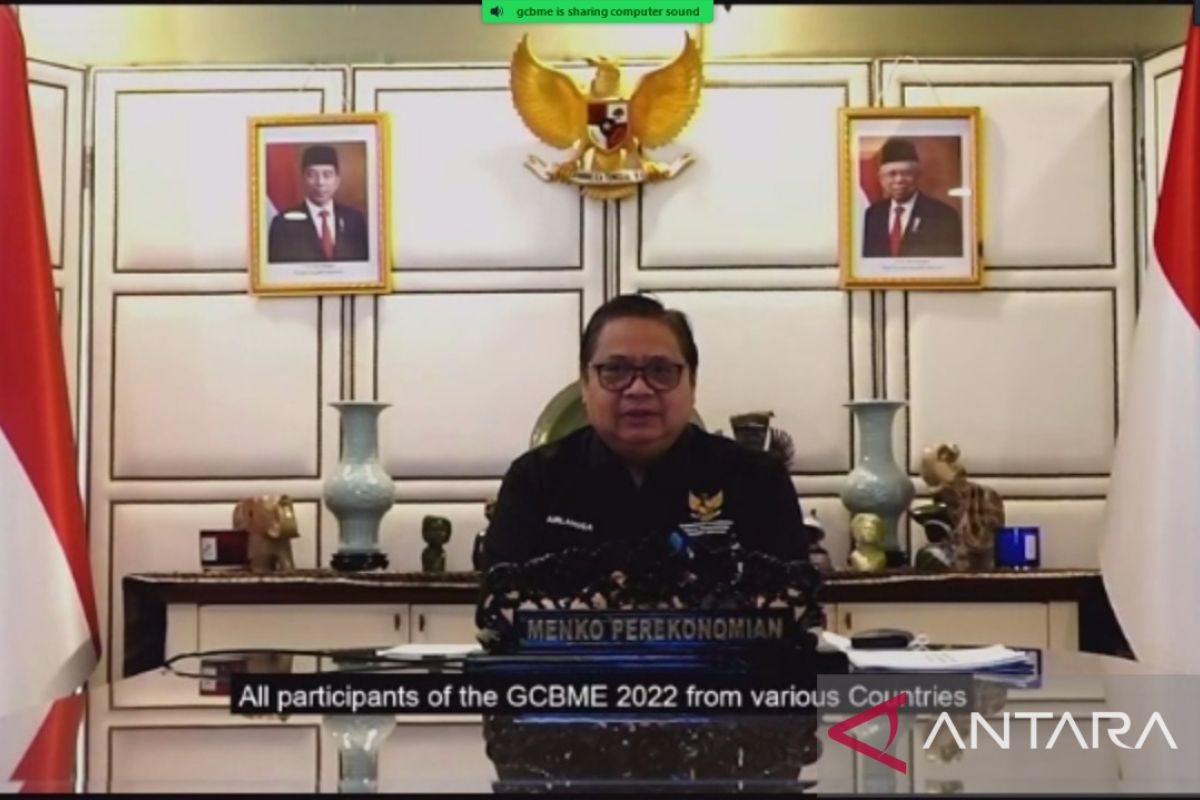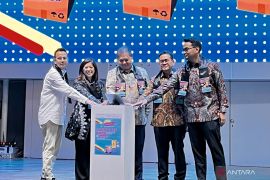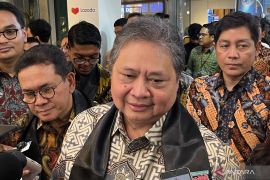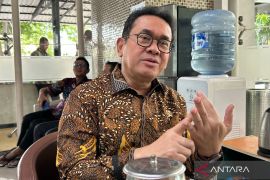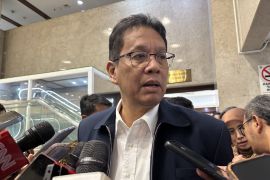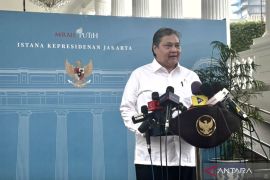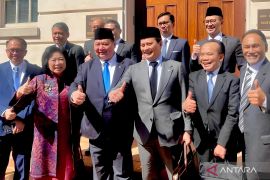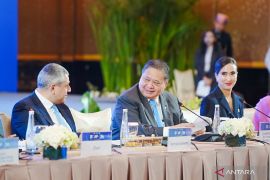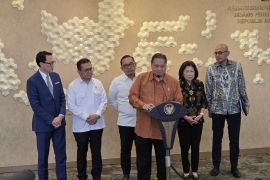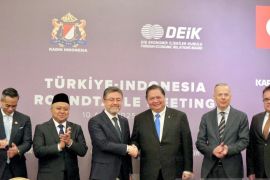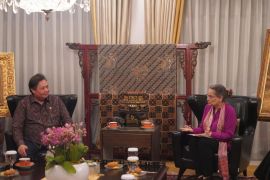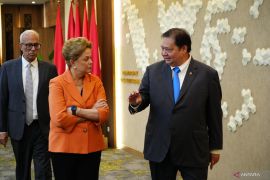To face global challenges ahead, it is necessary to take a multilateral approach, which does not limit export and import trade activities, in accordance with the rules of the World Trade Organization.Jakarta (ANTARA) - Indonesia is striving to strengthen synergies in the global industrial, trade, and investment sectors through its G20 Presidency, Coordinating Minister for Economic Affairs, Airlangga Hartarto, has emphasized.
"Indonesia seeks to bring the G20 to be able to pave the way for the World Trade Organization to remain relevant in discussing the trade and economic impacts of the current global situation," he said in his virtual keynote speech at the ‘7th Global Conference on Business Management and Entrepreneurship' on Monday.
He said he believes that the efforts could assist in trade policy implementation as well as help maintain the supply chain, availability, and affordability of food.
"To face global challenges ahead, it is necessary to take a multilateral approach, which does not limit export and import trade activities, in accordance with the rules of the World Trade Organization," he added.
The trade, investment, and industry sectors have a big role as catalysts for realizing a resilient and competitive national economy, he said.
Hence, the Indonesian government has strengthened the performance of the three fundamental sectors, which is evident from the trade balance surplus of US$5.09 billion as of June 2022, with exports in the first half of the year reaching US$141 billion.
In addition, the realization of foreign and domestic investment in the first quarter of 2022 reached US$10.22 billion and US$9.33 billion, respectively.
Furthermore, regarding the industrial sector, the government is continuing its efforts to accelerate the downstreaming of commodities to increase the added value of raw materials, especially manufacturing products, which it has managed to maintain at an expansive level, the coordinating minister has stated.
The government is also committed to carrying out the energy transition considering the impact of industry on the environment as well as expediting the realization of clean energy by implementing more efficient investments and strengthening the use of sustainable industrial technology.
Hartarto said that the various efforts need to be supported by all parties—from the government, corporations, micro, small, and medium enterprises (MSMEs), to academics to produce innovations that help solve future challenges.
"Significant impacts cannot be achieved only with (the enforcement of) various policies, but it must also be supported by the transformation of the government, corporations, MSMEs, and the community to establish a smart and digitally savvy society," he added.
Related news: Economic transformation helps Indonesia reach high-income nation goal
Related news: At least 19.5 mln MSMEs have joined digital ecosystem: minister
Translator: Kuntum Riswan, Uyu Liman
Editor: Rahmad Nasution
Copyright © ANTARA 2022
